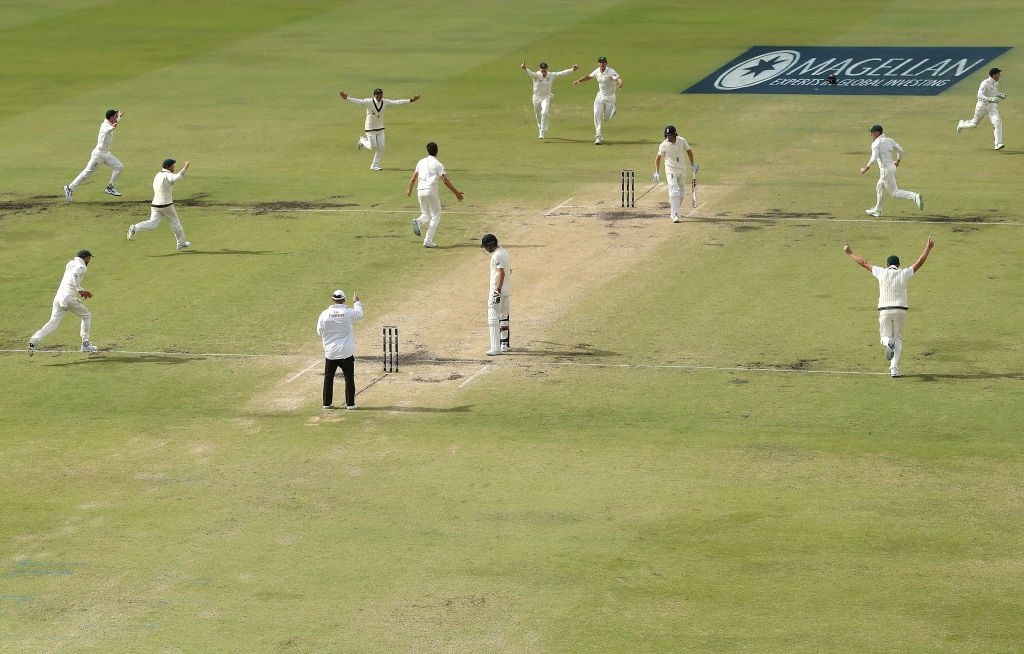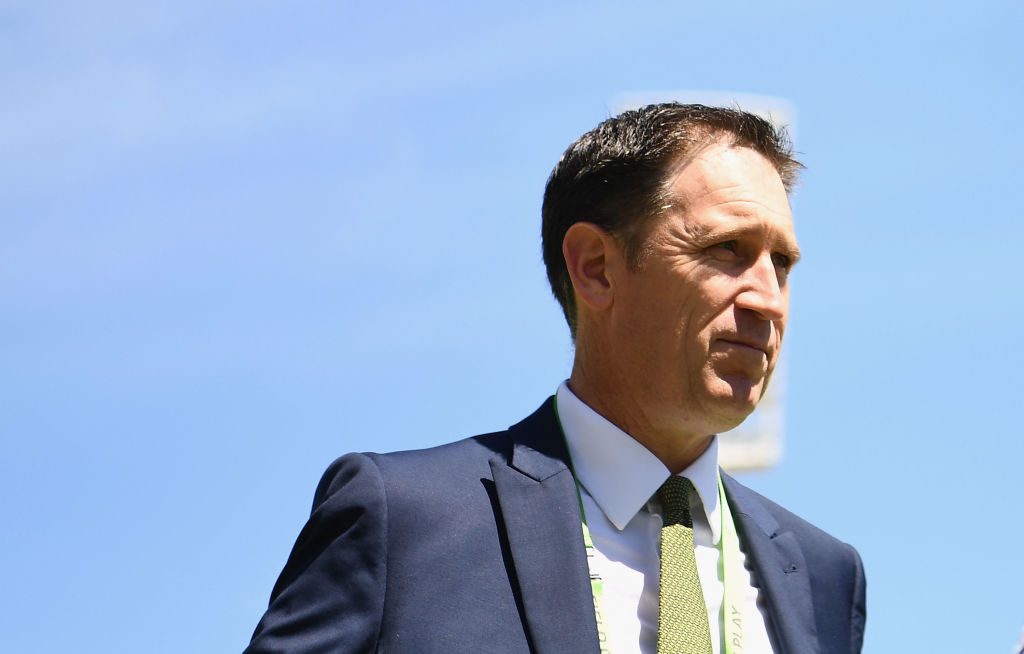
The International Cricket Council (ICC) have concluded that there is no evidence to suggest illegal match-fixing took place during the 2017/18 Ashes series.
After The Sun reported that the third Ashes Test in Perth had been targeted by match-fixers, the ICC’s anti-corruption unit subsequently launched a full investigation into the allegations, but they are satisfied that the match was not affected by any attempts to spot-fix.
Alex Marshal, the ICC’s anti-corruption general manager, said: “We have carried out an extensive global investigation with anti-corruption colleagues from Member countries based on the allegations in The Sun and the material they shared with us.
 Australia celebrate after claiming victory in the Third Ashes Test, which secured the little urn
Australia celebrate after claiming victory in the Third Ashes Test, which secured the little urn
“I am satisfied that there is no evidence to suggest any match has been corrupted by the individuals in the investigation, nor is there any indication that any international players, administrators or coaches have been in contact with the alleged fixers.”
The allegations were made on December 14, but the ICC, the ECB and Cricket Australia (CA) were quick to distance the players from any wrongdoing.
The initial report involved an undercover probe into a former cricketer and a bookmaker who spoke of their supposed ability to be able to fix elements of matches at both domestic and international level. The thorough investigation by the ICC found no evidence that the Test, or any part of the Ashes series, had been rigged, nor the players on either side approached to do so.
 Cricket Australia CEO James Sutherland watches on during day two at the WACA
Cricket Australia CEO James Sutherland watches on during day two at the WACA
CA chief executive James Sutherland said at the time of the story: “I just can’t see any reason why a player from Australia or England would in any way be vulnerable in this sort of situation. They’re very well-paid players, they know and understand the consequences.”
Under new powers brought in last year, the ICC has the ability to request that players, coaches and administrators working in cricket hand over their mobile phones. The refusal to do so could result in a two-year ban from the sport for non-cooperation.








